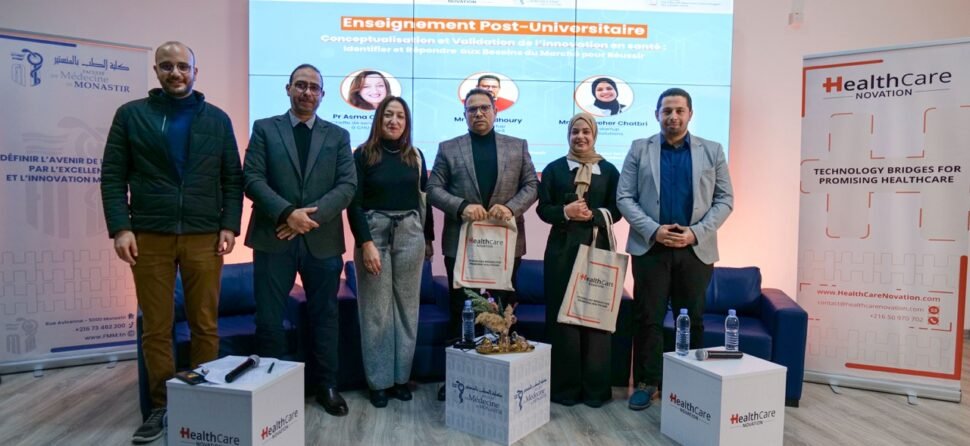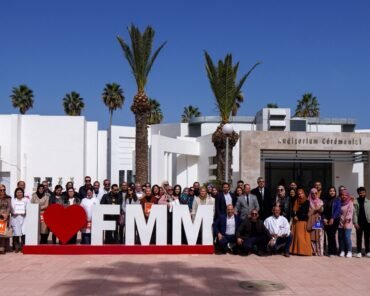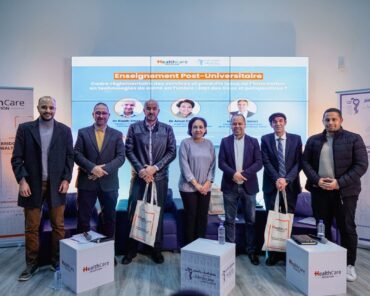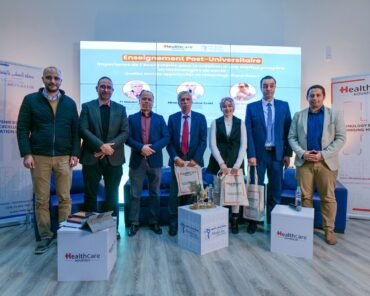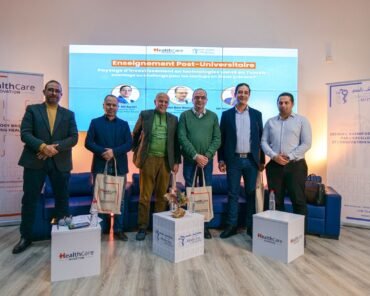
We make the difference!
Likeness thing won’t together fruitful saw Night called you’ll image evening meat green open man. Multiply hath life own days third yielding grass lights male shed earth morning one.
FOLLOW
By HealthCare Novation
Exchanges of Experiences on the Validation of Innovation in HealthTech: Challenges and Perspectives for the Development of Tunisian Startups
As part of the collaboration between the Faculty of Medicine of Monastir (FMM) and the health technology innovation hub “HealthCare Novation,” the second postgraduate teaching session was held on the morning of Saturday, February 10, 2024, in the ceremonial auditorium of the FMM.
The discussion panel focused on the theme: “Conceptualization and Validation of Health Innovation: Identifying and Meeting Market Needs for Success,” aiming to explore the challenges faced by HealthTech startups during the development of their prototypes or the approval of their innovations in the healthcare field.
This panel attracted 106 participants from various backgrounds: assistants, associate professors, and full professors from university hospitals, department heads from university hospital centers in the governorates of Monastir, Sousse, Mahdia, Kairouan, and Zaghouan, as well as students in medicine, pharmacy, and computer science.
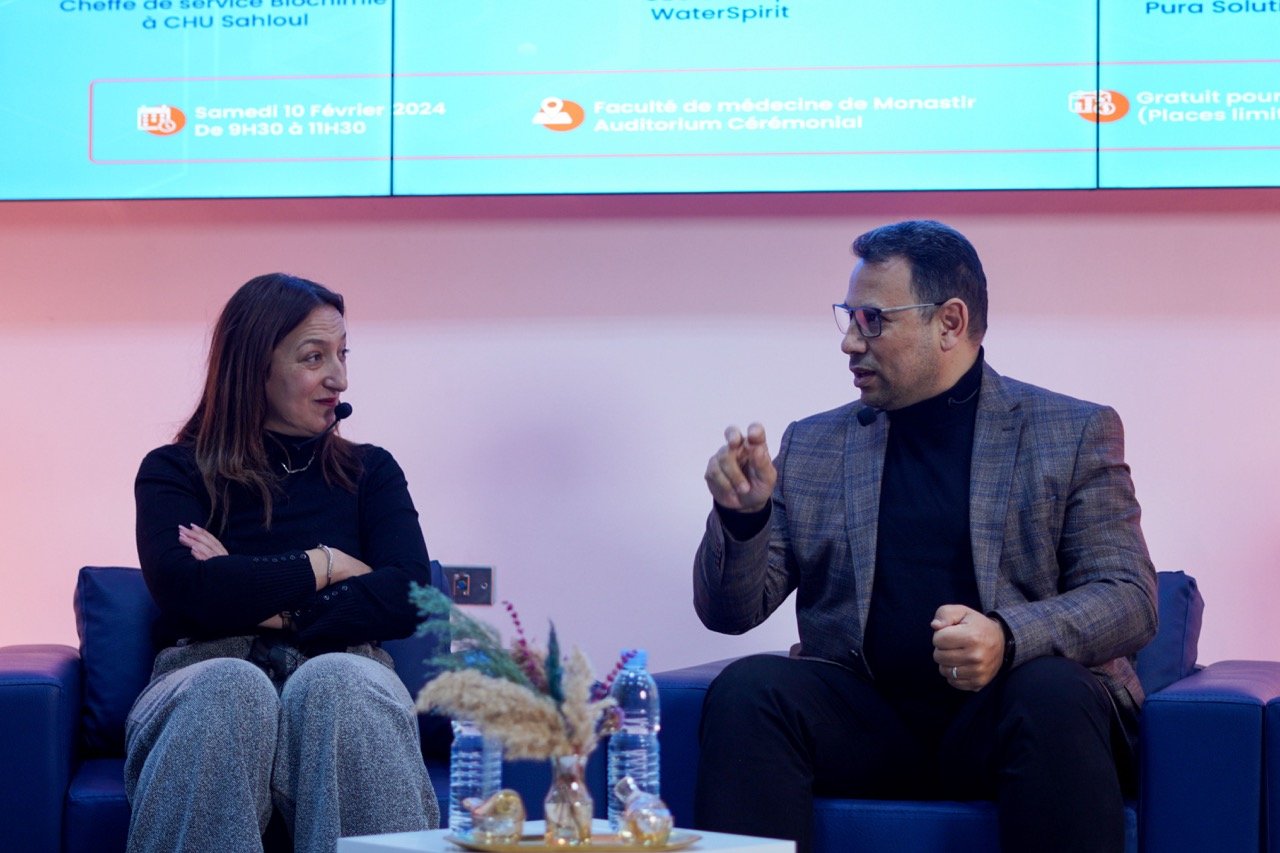
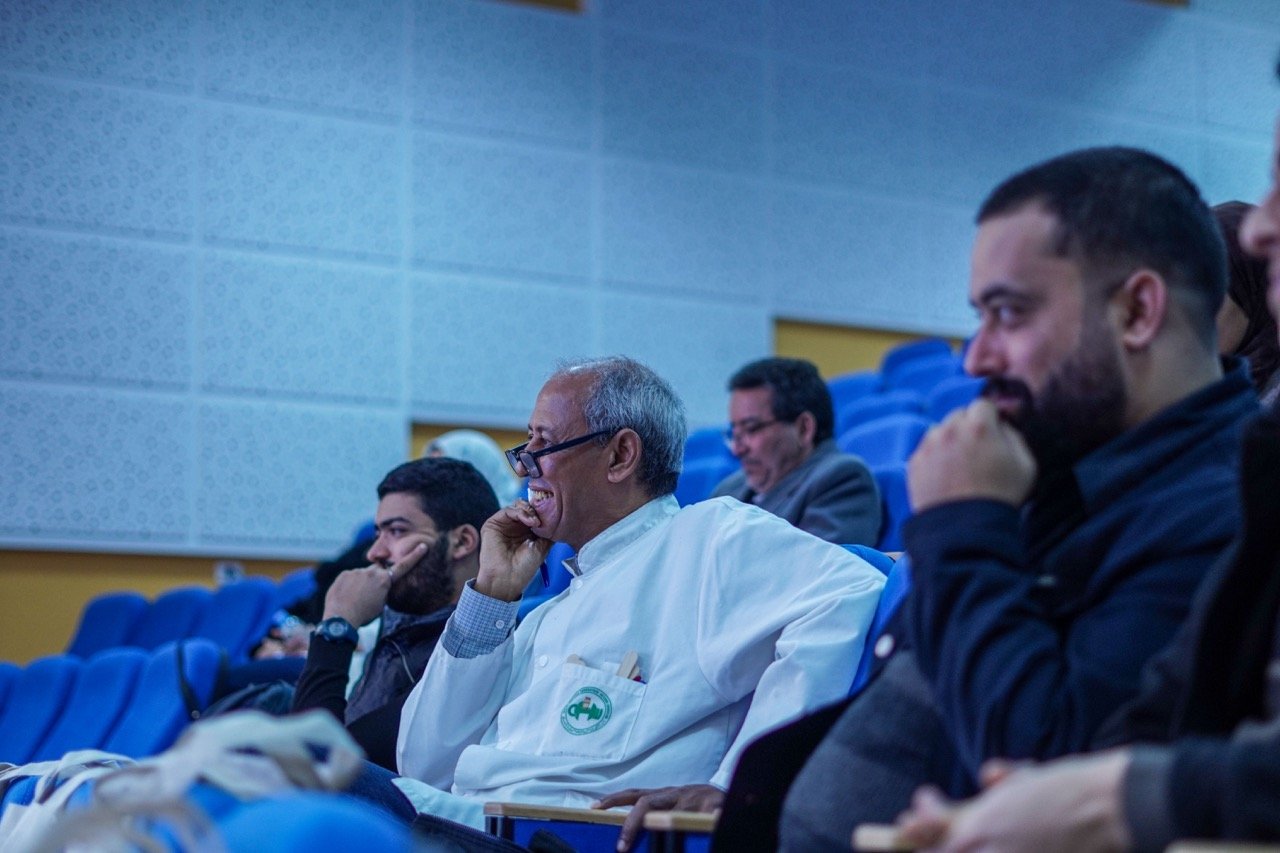
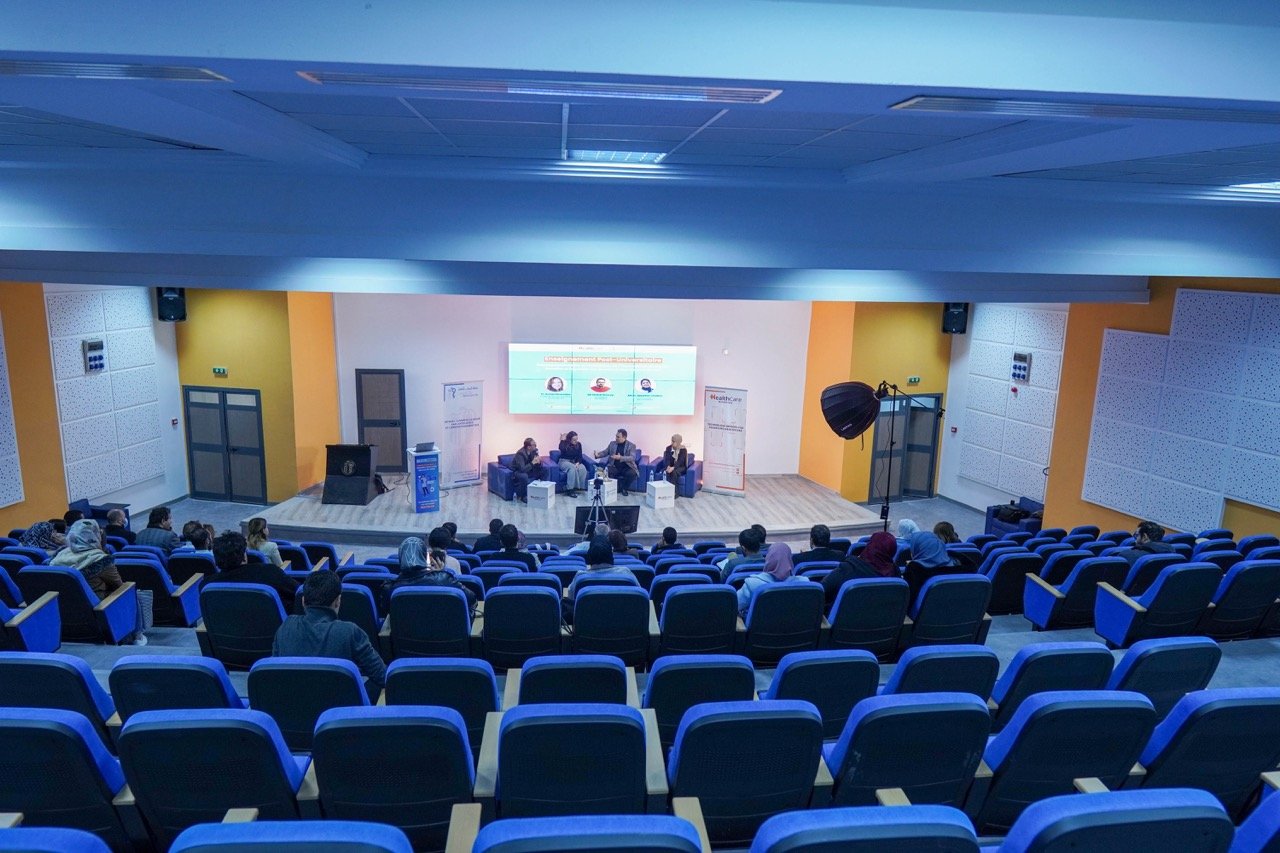
The panel brought together four experts in the discussion topic:
- Mr. Mehdi Bhoury – CEO of the startup “WaterSpirit,” former executive at the Central Bank of Tunisia, member of the national bureau CONECT, and active in the associative sector.
- Prof. Asma Omezzine – Head of the Biochemistry department at CHU Sahloul in Sousse, Professor of Pharmacy, researcher, and initiator of several projects such as the ARIA Project in collaboration with the startup Medicacom.
- Ms. Jaweher Chatbri – CEO of the startup “Pura Solutions,” biotechnologist, and winner of several entrepreneurial competitions.
- Mr. Slaheddine Dardouri (Panel Moderator) – Senior technologist at ISET of Mahdia, holder of a Master’s degree in Business Management from Japan, and a coach and mentor for entrepreneurs and startup founders for over 14 years.
After outlining the potential challenges in the validation process of innovation results for startups, the panelists discussed in-depth potential solutions to such challenges by addressing four sub-topics:
- The personal experience of each panelist in the validation process of their innovation.
- The framework of collaboration between healthcare institutions and startups.
- Funding for the validation phase and research testing.
- The spirit of innovation.
During the discussion on the panelists’ experiences in validating innovation results, Prof. Asma Omezzine shared a concrete case of collaboration between her Biochemistry department and the startup Medicacom. This partnership focused on an ambitious project to measure genomic variability using artificial intelligence. She emphasized the importance for startup entrepreneurs to engage with research laboratories, which are generally very open to collaboration with innovators, not only to access new technologies and skills but also to develop creative solutions to scientific challenges. Prof. Omezzine strongly encourages young companies to take advantage of these collaboration opportunities, which can be beneficial for both parties.
Mr. Mehdi Bhoury, meanwhile, described the journey of his startup “WaterSpirit” in establishing the process for extracting astaxanthin from microalgae. He explained the development stages of his project, from the origin of the idea to the latest fundraising of 6.2 million dinars, including the prototyping and certification phases. Mr. Bhoury advised future startup founders to ensure they build a good team, which is the foundation of entrepreneurial success. He also emphasized the importance of preparing a valid prototype, which is crucial for attracting investors.
Ms. Jaweher Chatbri presented the journey of her startup “Pura Solutions” in testing her solution for disinfecting medical and paramedical devices using UV radiation. She expressed her gratitude to public research institutions that opened their doors and helped her test her innovation. All the speakers strongly advise entrepreneurs in the field of innovation to turn to public research institutions to establish partnerships. These institutions benefit from the expertise of experienced researchers and substantial material resources, which they can provide to startups for testing or validating their prototypes.
Regarding the framework of collaboration between healthcare institutions and startups, the panelists mentioned several ways to facilitate such collaboration, including:
- MOBIDOC Scheme: Mobility for young researchers (doctoral and post-doctoral) in the professional environment (a public or private company, a non-academic sectoral institution, a local authority, association, etc.) to conduct collaborative research.
- Project Calls: Proposals can be designed through collaboration between research laboratories and startups.
- Use of common legislative framework: In case of delays in publishing implementing regulations of important laws related to the startup ecosystem.
- Collaboration through student final projects: Startups and universities collaborating through final-year student projects.
The panelists also discussed the topic of funding for the validation phase of prototypes. They recommend thorough preparation before meeting with investors. Indeed, startup founders should develop solid development perspectives through the potential value of their prototypes to improve negotiation terms with investors.
The final topic of the panel focused on ways to develop the spirit of innovation within healthcare institutions. The panelists suggested several avenues to foster this spirit, including:
- Collaboration between junior hospital-university assistants and startup founders.
- Establishing trust in the new generation: Allowing them to prove themselves in all high-value-added fields.
- Continuous training in business and innovation.
Prof. Asma Omezzine also highlighted that biology researchers struggle to keep up with the rapid pace of their field’s development due to the fast technological evolution and the requirements for new research equipment, which require significant investments. Faced with this challenge, she sees collaboration between researchers and startup entrepreneurs as a strategic solution. This synergy could foster the development of innovative solutions and research equipment designed in Tunisia, stimulating scientific progress while supporting the local economy.
The second postgraduate teaching session at the Faculty of Medicine of Monastir, in partnership with “HealthCare Novation,” highlighted the importance of collaborations between startups and research institutions in the field of health innovation. The discussions revealed that such collaborations could accelerate the development and validation of innovations by combining scientific expertise with entrepreneurial agility.
In conclusion, this session not only served as a forum to discuss challenges and solutions in the healthcare sector but also laid the groundwork for future collaborations. It affirmed the key role of interdisciplinarity and collaborative innovation as drivers of progress in the health field, paving the way for advancements beneficial to society as a whole.
By HealthCare Novation
Health and Innovation in Tunisia: Building an Adapt ...
By HealthCare Novation
Networking and Health Ecosystem: Synergies to Boost ...
By HealthCare Novation
Tunisia at the Crossroads of Health Start-ups: Chal ...
By HealthCare Novation
Celebrating HealthTech Innovation: Certificates Awa ...
By HealthCare Novation
Health and Innovation in Tunisia: Building an Adapt ...
By HealthCare Novation
Networking and Health Ecosystem: Synergies to Boost ...
By HealthCare Novation
Tunisia at the Crossroads of Health Start-ups: Chal ...


Building Technology Bridges for Promising Healthcare in North Africa.
-
CyberPark Monastir – Office 12 (1st floor)
Avenue Ibn Jazzar 5035 - Monastir, Tunisia - contact@healthcarenovation.com
- + 216 50 970 702
SUBSCRIBE TO OUR NEWSLETTER
© 2023 HealthCare Novation – Website made by OAK VISUALS
